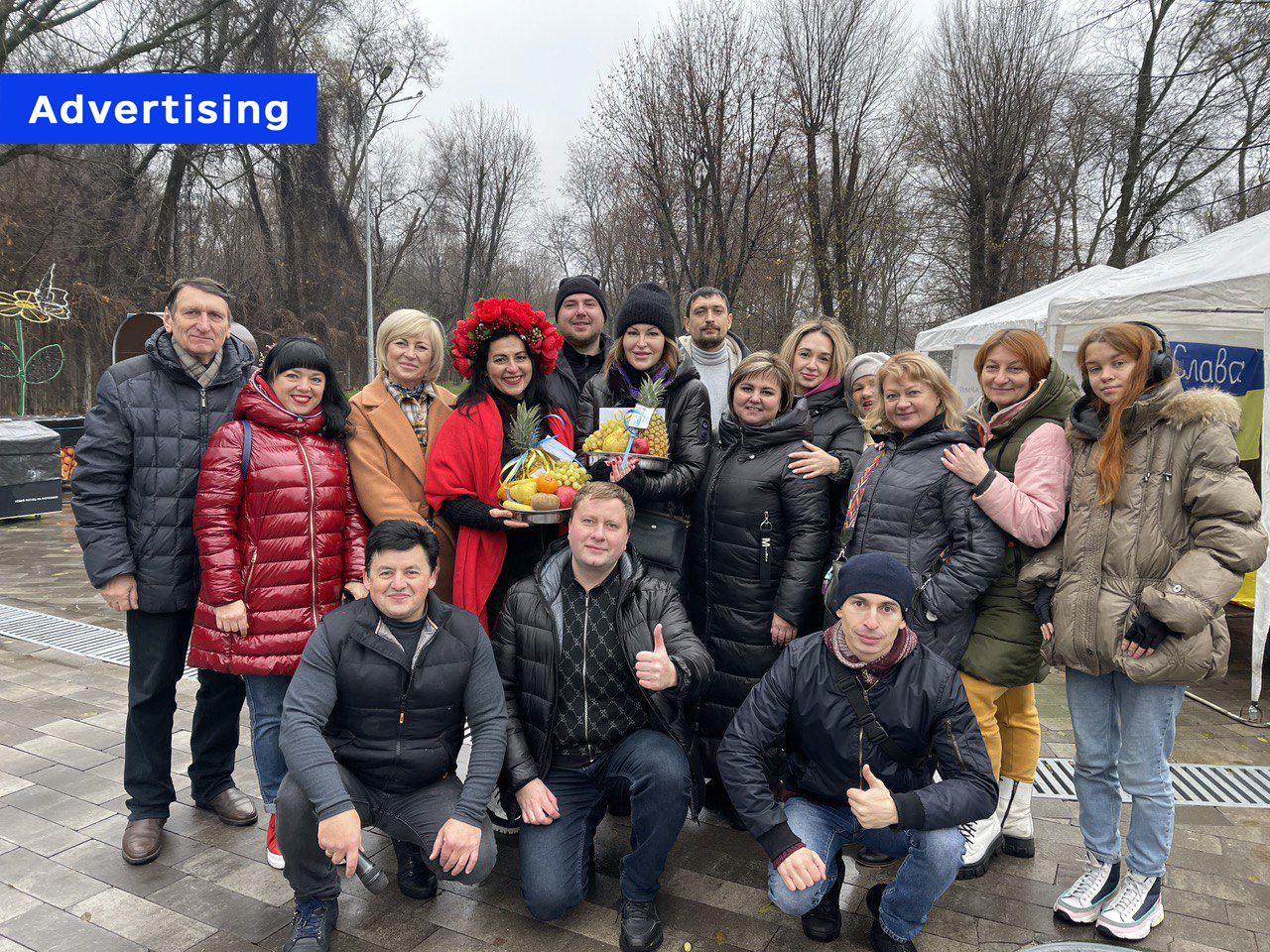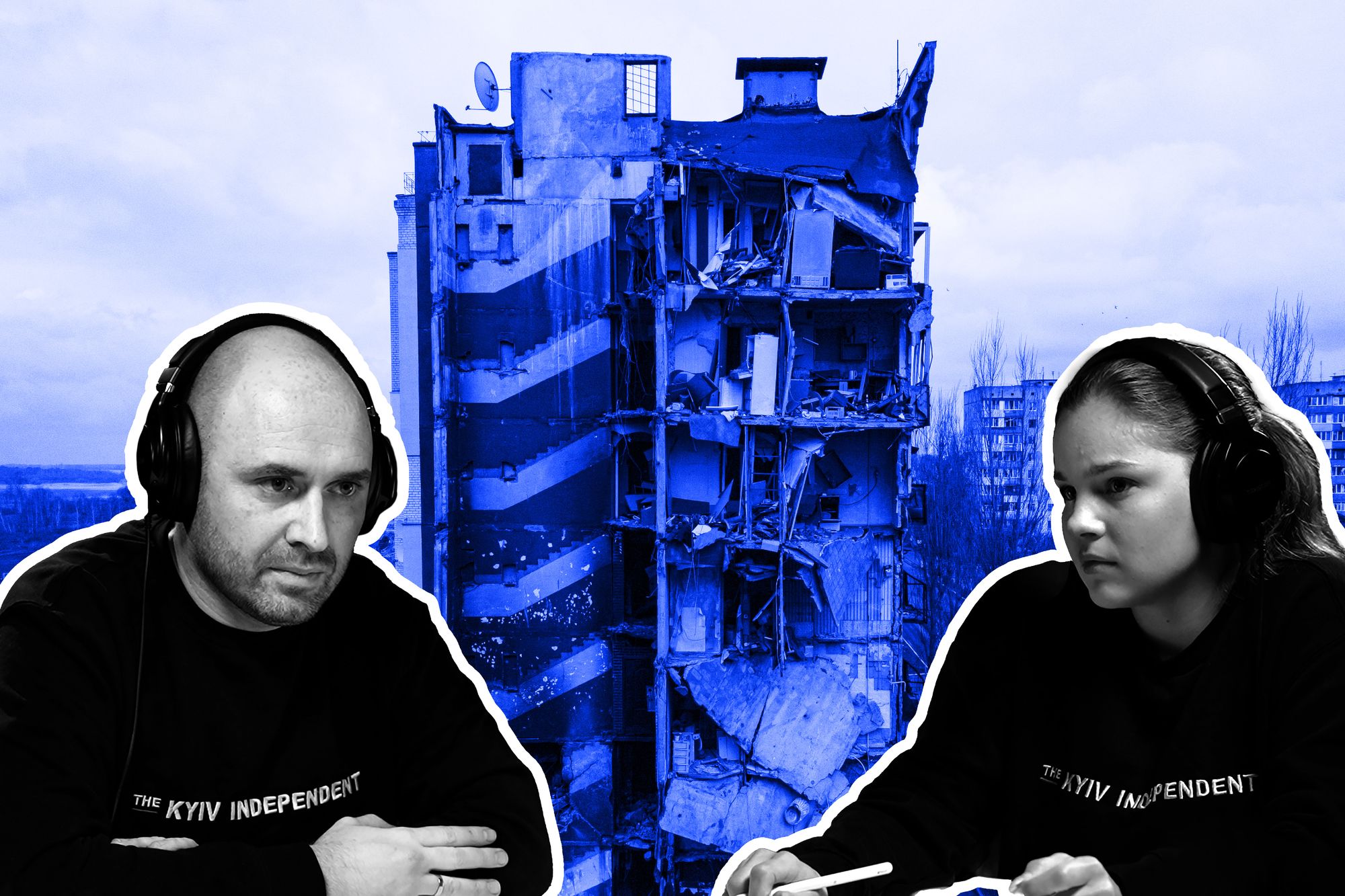Olga Moloko: Civil society plays critical role in helping Ukrainians survive Russia’s war

Editor's Note: This story was sponsored by East Europe Foundation (EEF), a Ukrainian non-profit charitable organization that helps Ukrainians affected by Russia’s all-out war.
Russia’s full-scale invasion of Ukraine has caused a tremendous humanitarian crisis.
The UN estimates that the number of people in need of humanitarian aid and protection skyrocketed from three million to 18 million people a few months into the all-out war.
Over eight million people had to flee Ukraine in the face of the Russian invasion, bringing about the largest refugee crisis in Europe since World War II.
Indiscriminate Russian shelling, including attacks against civilian infrastructure, have caused thousands of deaths. While the UN has confirmed 22,734 civilian casualties in Ukraine, the real figures are likely much higher as it is currently impossible to accurately record casualties in the war’s hotspots and in areas currently under Russian occupation.
The Ukrainian government has proved more resilient than many expected, and governments from across the world have stepped in to provide humanitarian assistance. But it has been the non-governmental organizations in Ukraine that have shouldered the bulk of work helping Ukrainians survive Russia’s war.
Since the start of Russia’s full-scale invasion in February 2022, many Ukrainian NGOs have reoriented their work to humanitarian support. Non-profit organizations have been providing people with meals, evacuating vulnerable populations from the most dangerous areas, helping internally displaced persons integrate into local communities, and providing shelter to those who have lost their homes.
Forty-three percent of Ukrainian NGOs now report that helping the military and victims of Russia's aggression is a top priority, according to a recent research by the Kyiv International Institute of Sociology.
We at the East Europe Foundation (EEF) have had a front-row seat to this transformation, providing support to local NGOs and making sure they have both the resources to address short-term humanitarian needs of their community and the capacity to grow in the longer term.
The Shelter Project: Assisting internally displaced persons in Ukraine
Before Russia’s full-scale invasion Svitlana, whose last name is not revealed due to security concerns, lived in Melitopol, a city in southeastern Ukraine that has been occupied by Russia since the first week of the all-out war.
As security risks intensified over the first few months of the war, Svitlana left her city for Vinnytsia Oblast, a region in west-central Ukraine. There, she lived in a shelter – and found a job with the NGO Podillya Regional Development Agency. She found a place to rent soon after.
Svitlana is one of the 75,000 people who received aid thanks to The Shelter Project initiated in March 2022 by East Europe Foundation. Within this program, our foundation is working with local NGOs to provide support to internally displaced persons. The project has four components – furnishing shelters, distributing food and humanitarian packages, delivering humanitarian aid, and providing psychological support.
The foundation has helped set up 65 shelters and deliver 275 tons of humanitarian aid to 20 of Ukraine’s oblasts, reaching some 75,000 people with aid. We’ve been working in the regions directly affected by military action like Ukraine’s northeastern Kharkiv Oblast, as well as in relatively safer western regions of the country that have accepted most of the internally displaced persons from Ukraine’s south and east.
The program has also funded a center for medical and psychological aid at the Lviv railway station, a critical transportation hub that millions of Ukrainians passed through while fleeing to western Ukraine or further west to other European countries. The center gathered some 600 psychologists, doctors, and volunteers who worked around-the-clock to support children and adults fleeing war zones.
The role of local NGOs operating on the ground has been critical to the program. With local expertise, they understand the needs of their respective communities best.
By providing direct grants to local organizations and by helping develop their organizational capacity, we at East Europe Foundation are ensuring that these NGOs have the resources they need to do the critical work of supporting Ukrainians affected by Russia’s war. Our goal is to help professionalize local NGOs, making them stronger and more effective.
What’s next
The work of Ukrainian NGOs amid the full-scale invasion has been a reminder of how important it is to support local civil society organizations helping people on the ground.
Historically, the NGO sector has been the first to rise up to challenges in Ukraine – from the EuroMaidan Revolution in 2013-2014 to the Covid-19 pandemic to Russia’s full-scale invasion in 2022.
NGOs can generally move more quickly and be more flexible than the government, whether it comes to buying equipment for territorial defense forces without having to deal with cumbersome bureaucracy or setting up a shelter in a matter of days.
Ukrainians understand that Russia’s war against Ukraine isn’t likely to end soon, which is why civil society actors know they must continue providing aid to people directly affected by the invasion and supporting the reintegration of people who have lost their homes.
When the war does end, however, a long and difficult period of post-war recovery will require the extensive involvement of the NGO sector to aid people, implement reconstruction projects, and to ensure accountability.
During the full-scale Russian invasion, many NGOs changed their focus to help people affected by the war, often reducing their investment in the work they had done before, such as educational initiatives or anti-corruption work.
As of early 202, more than half of Ukraine’s NGOs and charitable organizations created before Feb. 24, 2022, have reported financial difficulties, a recent survey shows.
While research indicates that donors and state-funded programs are ready to support war-related projects, institutional development is often the area that gets the least support. That’s why it’s important for us at East Europe Foundation, and for donors more broadly, to support NGOs’ institutional development and capacity building.
We are convinced that programs implemented by our foundation and other NGOs will continue to be instrumental in helping Ukrainians survive Russia’s war.
Supporting Ukraine’s NGO sector is essential to bring about our joint goal – building a strong and invincible country.













